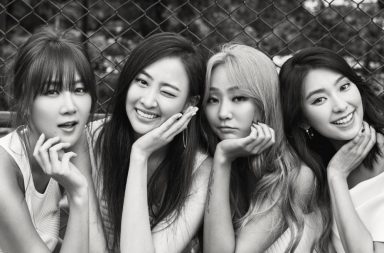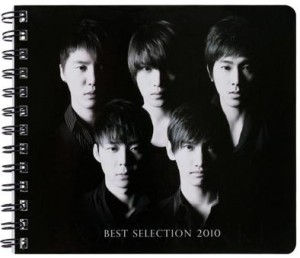 Time, there simply isn’t enough of it.
Time, there simply isn’t enough of it.
When you are a serious fan of anything — be it Supernatural, comic books, or K-pop — you can find yourself strapped for time to both catch up on your fandom and get everything you need to done. Occasionally sacrifices need to be made, and some of us would rather catch up on the latest K-dramas than sleep, but work and school still exist no matter how hard we wish them away.
As a very involved fan, how do you balance your participation in the K-pop fandom with your personal responsibilities? What do you sacrifice?
Camiele: Honestly, K-pop has never really taken me away from my personal responsibilities. It’s more been a supplement to it. When I found K-pop, I was in a really bad way. A friend introduced me to DBSK, and I’ve used them and now K-pop to just help me go through my daily goings on. I used DBSK to study while I was in school. I use K-pop to work and use it in general to pass the time. I think the trick in that is that I was a bit older when I came to K-pop. Not ahjumma status, but old enough where I’m older than two of the members of DBSK. At that point, I’d already dealt with boy bands and the spazzing (NKOTB, New Edition, and Backstreet), so I knew how to use my love of the genre to work with me instead of being a disruption. I’ve never sacrificed anything, except, of course, my mental and emotional stability, which has always been shaky at best anyway. As with all music, K-pop has just become a part of my life. It gives me so much and allows me to work better than I would without it.
Andy: My life isn’t incredibly busy — okay, I don’t really have a life — so K-pop doesn’t take away from anything. Sometimes, K-pop even takes a backseat to my otherwise mundane daily life. It’s not uncommon for me to forget to read the latest K-pop news or watch a MV until late at night. However, like Camiele, K-pop is just a part of my life. It helps keep my sanity in check and offers a nice little escape from things. I even combine K-pop and life together to make it better: nothing beats singing along while washing dishes or exercising.
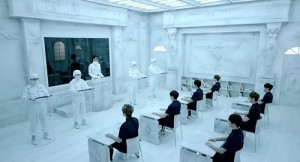 Lo: I don’t really see K-pop as being separate from my “real life” any more than my fangirling over Arrow or Fall Out Boy, especially considering that I’m an introvert by nature. (Translation: I live on the internet). My life is split into work and play, and that’s what I have to balance, not K-pop and non-K-pop.
Lo: I don’t really see K-pop as being separate from my “real life” any more than my fangirling over Arrow or Fall Out Boy, especially considering that I’m an introvert by nature. (Translation: I live on the internet). My life is split into work and play, and that’s what I have to balance, not K-pop and non-K-pop.
My schoolwork, the huge amount of reading and papers demanded by a history degree, the screenplay I’m working on and my responsibilities here need to be balanced with my social life, my TV nerdiness, my comic geekery, my vlog, and yes, my K-pop fangirling. I don’t really sacrifice anything as much as I juggle everything. I listen to new K-pop albums while writing papers, use new drama episodes as motivating tool to slog through a particularly boring book, and keep to a schedule in order to ensure I’m not neglecting my needed writing for Seoulbeats because I’m obsessed with American Beauty/American Psycho. To me, life is all about balance, no matter what it is you’re balancing.
Leslie: All through college the first time, I did the same as you, Lo. I lived on the Internet. I was constantly writing/reading fan fiction or searching for news, videos and pictures related to K-pop while in class, at work or at internships. My professors were probably tired of hearing about Korean entertainment in all of my pieces and projects because I always found a way to tie it into my classwork.
But it’s funny that this roundtable would come up now because I’m in the transition of disengaging my life from K-pop, meaning I’m trying to keep my dedication to K-pop at a level that’s more balanced with my real-life obligations. I’m not totally sure if I’m succeeding at that though.
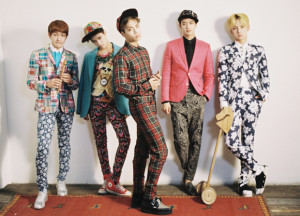 Lindsay: I treat K-pop as a job-hobby, or “jobby” if you will. I was spending all of my free time reading K-pop news and watching K-pop videos before I started working for Seoulbeats — basically, it was a very time consuming hobby. Once I started working for Seoulbeats, it was a relief to be able to tell people, “No, I can’t go out tonight, I have to work,” instead of having to come up with a silly excuse for staying home so I could watch Shinee‘s new music video ten times in a row. So what I’m saying is, turning K-pop into a job is how I manage it. I still sacrifice having a social life, but at least now people think I have a legitimate excuse.
Lindsay: I treat K-pop as a job-hobby, or “jobby” if you will. I was spending all of my free time reading K-pop news and watching K-pop videos before I started working for Seoulbeats — basically, it was a very time consuming hobby. Once I started working for Seoulbeats, it was a relief to be able to tell people, “No, I can’t go out tonight, I have to work,” instead of having to come up with a silly excuse for staying home so I could watch Shinee‘s new music video ten times in a row. So what I’m saying is, turning K-pop into a job is how I manage it. I still sacrifice having a social life, but at least now people think I have a legitimate excuse.
Leslie: I’m pretty sure that’s why I’ll never leave K-pop. It’s a job now — I consider myself a professional fangirl — so now I have an excuse, which makes it that much harder to leave it behind for things that should be more important.
Irteqa: For a vignette into my life, I have managed to create a balance over the years between how much attention I give to K-pop and everyday responsibilities. Like most orderly and uninitiated minds, the second they hear a Shinee song, see T.O.P‘s “Fantastic Baby” hair, or even hear the beauty of Korean language for the first time, I was enthralled. Everything else took a temporary backseat while I explored and got better acquainted with K-pop in the early days. Even now, with more responsibilities and preoccupations, K-pop is still a part of my everyday ongoings; I listen to it while I study, I watch one or two K-drama episodes in my free time, and I look online for K-Entertainment news every morning. I think all I have to focus on is keeping my current schedule in alignment for the coming days, and when it gets hectic, finding a new and accommodating evenness.
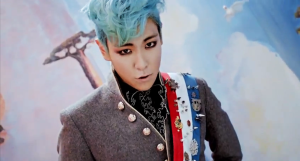 Hania: I’m quite similar to Leslie in the way that Seoulbeats allowed me to make my fangirling legitimate and feel like I was still being productive!
Hania: I’m quite similar to Leslie in the way that Seoulbeats allowed me to make my fangirling legitimate and feel like I was still being productive!
Thankfully, I don’t feel like K-pop is affecting my ability to live a normal life or getting in the way of my responsibilities. However, I was surprised by how upset I became over some of last year’s scandals. I would be fraught with worry for my biases if I ever saw them injured on stage and constantly fretted over any rumours coming out of the fandom. It got to a point where I felt I was unhealthily affected by what was going on in the lives of people I have never met and probably will never meet.
I also realised that I was being sucked into friendship groups where the only thing we had in common was K-pop, and since then, I’ve actively tried to diversify my friendship groups.
Now that I’m aware of my potential to become overly-attached to idols and to worry about their well-being, I feel like I’m able to keep on top of it and simply have K-pop as a fun hobby!
Amy L: When I first became a fan, K-pop definitely did carve chunks of time out of my personal responsibilities. Like Irteqa, everything else fell into the backseat at first. I spent all my of my time updating fan blogs and reading fanfiction, and actively tried to fit K-pop into all my conversations with friends regardless of their own interest (or lack thereof) in the subject. Looking back, I’m amazed they stayed my friends after I endlessly subjected them to music videos they couldn’t have cared less about.
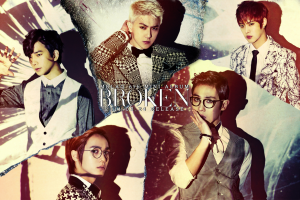 Saying I’ve found a balance would be a lie, but these days my infatuation has mellowed. Now when things get busy it’s usually K-pop that gets sacrificed over work, rather than the other way around. I’ve been trying to treat K-pop kind of as a dessert, something that I should enjoy but not subsist entirely on, and I think I’m much healthier with this mindset!
Saying I’ve found a balance would be a lie, but these days my infatuation has mellowed. Now when things get busy it’s usually K-pop that gets sacrificed over work, rather than the other way around. I’ve been trying to treat K-pop kind of as a dessert, something that I should enjoy but not subsist entirely on, and I think I’m much healthier with this mindset!
Cjontai: I identify with Amy in that originally K-pop was a hardcore obsession for me. I spent hours looking up videos of everything, which led to an osmosis effect of learning Hangul. Writing for Seoulbeats helps me feel a little less guilty when I do binge out now because I excuse it as “research.”
The bittersweet reality of having my early faves either partially disband or take forever to make a comeback has turned K-pop into a casual hobby now. American TV improved a lot for me last year too, so I’m not as in tune with K-dramas either. For the most part K-pop is like any form of entertainment in my life. I moderate my intake fairly to maintain my personal sanity.
Nick: On the topic of friends, thankfully most of my close friends are just as obsessed with K-pop as I am; in high school we’d spend lunch watching music videos or talking about new debuts (something that still continues into university today). The fact that everything on K-pop is online means that it’s easy to check your phone for a new teaser or check Twitter or fanboards on the bus. As an International Studies major, I keep discovering ways to write about the culture of the Korean fandom, the transnational nature of Hallyu, or some other related topic for my term papers and essays, so in that way I’ve been able to look at my obsession somewhat objectively and think about this phenomenon from a more critical and academic perspective.
I do agree with Hania though, that the train wreck of 2014 definitely a wake up call. I had been in K-pop for a good six years, but Exo was the first group that I was a hardcore fan of since pre-debut. It devastated me and showed me how emotionally attached I was to this group, which helped me realize that I can support and love them without my deriving my own happiness from theirs.
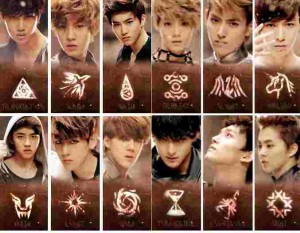 Chelsea: Reading the responses, I’m glad I wasn’t the only on who went through that obsessive introductory phase! Like Leslie and Nick, in undergrad I was able to incorporate my interest in K-dramas and K-pop into my academic work. Now that I’m writing for Seoulbeats, I still have that rewarding feeling of my interest being channeled into something productive.
Chelsea: Reading the responses, I’m glad I wasn’t the only on who went through that obsessive introductory phase! Like Leslie and Nick, in undergrad I was able to incorporate my interest in K-dramas and K-pop into my academic work. Now that I’m writing for Seoulbeats, I still have that rewarding feeling of my interest being channeled into something productive.
The more time I spend in the K-pop fandom, the more it has become a part of my everyday life to the point where, like Lo, there isn’t a distinction between real life and K-pop life. That isn’t to say I think about K-pop 24/7, but it has simply become part of my routine: I keep up with news on Twitter, listen to some K-pop at work, blog or write about K-pop at night and maybe read fanfiction before bed. I do a lot of other things during the day, but now that I’m past the point of needing to watch every Shinee variety appearance since 2008, it doesn’t take nearly as much of my time to stay up to date. I think after you overcome that initial hurdle of wanting to know anything and everything, the obsession balances itself out.
Taylore: I’m like Chelsea and Lo in that K-pop isn’t something that’s separate from the rest of my life. I listen to music almost all the time, so K-pop is basically a soundtrack for my everyday adventures; and since I don’t watch dramas or variety shows very often, there isn’t much to distract me. I will admit, of course, that I do sometimes get distracted by the odd music video or dance practice while studying, but usually my stress builds up and forces me back to work.
I’ve also been lucky that, like Nick, my closest friends are also into K-pop. We can fangirl together, and they help me make sure I never cross a line that might be unhealthy. I’m a motherly person, so I get easily worried about people, even those I haven’t met. My friends calm me down when my mothering instincts take over, and writing for Seoulbeats has been super useful in getting out the emotions that I’d been bottling up since K-pop infected my life.
(Images via Starship Entertainment, SM Entertainment, Big Hit Entertainment, YG Entertainment, and J. Tune Camp)


